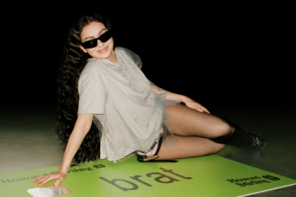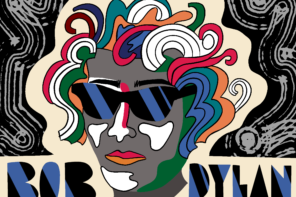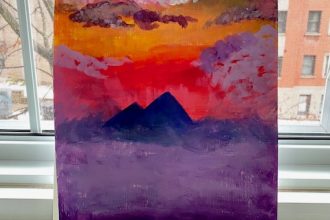Abstract: Rebecca Black has been a household name for a decade now. Her breakout song “Friday” accompanying music video defined a generation and immortalized her as one of YouTube’s most iconic videos and an unforgettable meme that still gets referenced to this day. Despite the inescapable humour surrounding “Friday,” I want to shed light on Rebecca Black’s recent musical endeavours, proving that she should be treated as a legitimate pop star instead of an outdated internet joke. In this article, I will outline a chronological timeline (x-axis) of Rebecca Black’s career (y-axis) in order to demonstrate that ultimately, the future belongs to her.
February 10, 2011: That Fateful Day
It’s 2011, and life is simple. You are eleven-and-a-half years old, cozy under your sleeping bag at your friend’s birthday slumber party on a cold winter night. You just brushed your teeth, but then your friend’s mom brought out a huge bowl of M&Ms. You’re conflicted on how to approach the situation. In the midst of your youthful crisis, one of the partygoers brings you over and forces you all to watch a video on their iPod touch.
…the song and video are full of iconic and hilarious moments.
The screen is illuminated and you hear a heavily autotuned 13-year-old girl sing her heart out about her mundane morning routine. Before getting into her friend’s car, she debates whether or not she should sit in the front seat, or whether it is nobler to join her friends in the back seat. The chorus consists of a nasally but enthusiastic chanting of the word “Friday,” as Black is greatly looking forward to partying the weekend away. From the ridiculous lyrics, actors that look way too young to drive, and the unexpected rap midway through, the song and video are full of iconic and hilarious moments.
Even at this point, it was clear that nothing would stop her.
While it is truly impossible to encapsulate everything great about this song and video, “Friday” thrusted Black into the spotlight, albeit negatively. The video received so many dislikes and hateful comments that it was removed from YouTube for three months during the summer of 2011. Despite receiving so much pessimistic attention during her teenage years, Black continued to strive towards a career in music. Even at this point, it was clear that nothing would stop her.
2011-2013: The Dark Era
After the hateful storm surrounding “Friday,” Black’s music fell under the radar for several years. She released three original songs from late 2011 to early 2012 (“Person of Interest,” “Sing It,” and “In Your Words”) that failed to gain considerable attention. In a desperate attempt to re-enter the mainstream, Black released a song and video titled “Saturday” in the winter of 2013. The song featured fellow singer/YouTuber Dave Days and recycled some lyrical conventions from “Friday” as a callback to her career’s humble beginnings. At the time of writing this article, the video still stands at under a million views. (“Friday” has over 150 million.) While the performance shows Black’s growth in both vocal performance and songwriting prowess, “Saturday” represents a sombre time in her career. In a futile attempt at becoming relevant again, Black churned out a mediocre sequel to her iconic meme-song, when she easily could have earned her desired fame through her undeniable talent.
2013-2017: Covers, A Necessary Hiatus, and More Covers
During the previously mentioned dark era, which culminated in the uninspired “Saturday,” Black began uploading covers of popular songs to her YouTube channel. Her two Miley Cyrus covers, “Wrecking Ball” and “We Can’t Stop,” were released prior to “Saturday.” However, Black stepped away from music for three long years, only to return in 2016 to release more covers. Once again, these covers prove that she has improved drastically as a singer since her squeaky debut, but they lack any substance or personality. I hate to be harsh, but there is no reason to listen to Rebecca Black’s version of “Baby It’s Cold Outside” when dozens of higher quality renditions exist. While this era was relatively uneventful, it was a necessary time for Black to discover her own sound and style.
2017-2019: The Road to Redemption
The dust finally settled on Black’s cover phase as she began releasing an array of original songs. Although these releases remained under the radar, they were undoubtedly her best work at the time and marked an important shift in style. Her songwriting became more personal, focusing on themes like heartbreak and anger. Her lyrics grew more empowering, with songs like “Sweetheart” flaunting her status as a powerful woman, attacking the men in her life that have tried to bring her down. Sonically, this era proved that Black had a wider range that anyone could have anticipated. She was capable of singing heartfelt, emotional ballads (“The Great Divide,” “Do You?”) as well as seamlessly grooving over techno and EDM inspired beats (“Anyway,” “Foolish,” “Sweetheart”). Her versatility was unquestionable, her lyrics were vastly improving, and her production was better than ever. Despite rising to the peak of her career, Black was failing to receive the recognition she deserved, and she sought to remedy this.
2020: Quality Over Quantity
2020 was a quiet but important year for Rebecca. She only released two songs herself, “Self Sabotage” and “Closer.” Despite being a quiet year, these two songs serve as her best work, and they demonstrate Black building upon her previous artistic innovations. I would go so far as to say she perfected her craft, and she truly mastered her new approach to songwriting and performing. “Self Sabotage” is a vulnerable, lamenting ballad with an infectiously catchy chorus and gloomy, pulsating production. Contrastingly, “Closer” is an energetic love song, displaying her prowess as a pop singer. Once again, these two tracks alone boast Black’s versatility, proving that she shines the brightest when accompanied by unique, eclectic production.
2020-2021: Rebecca Black’s Foray Towards Hyperpop & Her Unquestionable Status as an LGBTQ Icon
Hyperpop is a recent experimental musical movement which focuses on pushing pop music to its absolute limits. Hyperpop performers will include high-pitched vocals, aggressive dubstep breakdowns, and more to make their music truly unique.
In the midst of the chaos, Black delivers a bold, sassy rap verse in which she brags about destroying labels and turning your man into a simp.
2020 saw a very unexpected collaboration between Dorian Electra, a genderfluid hyperpop heavyweight, and Rebecca Black, former internet meme queen. Their song, “Edgelord,” is a masterful collaboration fueled by internet culture and delivered in the midst of the COVID-19 pandemic. The two performers compliment each other wonderfully, with Electra leading the song by singing about how edgy they are over trembling bass and unexpected guitar solos.
In the midst of the chaos, Black delivers a bold, sassy rap verse in which she brags about destroying labels and turning your man into a simp. While the song is not radio friendly or accessible to the mainstream, it introduces Black to a cult group of music fans, who are finally given the chance to witness her talents. With this collaboration, fans were eager to see where she would go next, and they anticipated her next release.
Instead of the traditional idea of passivity surrounding the desire to re-enter a relationship, Black amps it up to be something exciting and empowering.
In January 2021, Black delivered “Girlfriend.” The song serves as her greatest pop song to date. On top of its catchiness, it feels both nostalgic and current at the same time. “Girlfriend” is an anti-breakup song and details Rebecca’s sudden desire to get back with her girlfriend. Although Black casually came out as queer on a podcast last year, her interview remained relatively under the radar. With this release, she is coming out on a grander scale and expressing herself through her music. She playfully sings about longing for her ex, driving over to see her, and getting the chance to be with her again.
In a world where heart-wrenching breakup songs are the norm, “Girlfriend” subverts expectations in several ways. Instead of the traditional idea of passivity surrounding the desire to re-enter a relationship, Black amps it up to be something exciting and empowering. Furthermore, the fact that the song is focused on a same-sex relationship strengthens its individuality, cementing it as her greatest song both in form and in content.
February 10 2021: Ten Years Later, Low How Far We’ve Come
To celebrate the ten year anniversary of “Friday,” Rebecca teamed up with an array of collaborators to deliver a remix of her first track, as well as an accompanying music video. Again, the hyperpop influence is on full display. Producer Dylan Brady’s fast-paced thumping beat, Black’s sped up vocals, and the guest verses from Dorian Electra and 3OH!3 result in a chaotic remix that barely resembles the original version. The music video makes various references to the 2011 version, as well as early 2010s meme culture and iconography.
However, what makes this transformation truly remarkable is that she is not choosing to ignore her old self, but rather embrace all versions of herself at once.
However, if anything is clear throughout the video or song, it’s the fact that Rebecca Black is no longer the person she was ten years ago. She’s grown up, both in terms of style and her outlook in life. Instead of her bright t-shirt and backpack, Black wears a leather bodysuit and fishnets; she is adorned in sharp jewelry and makeup. Her black and blue hair is tied into a ponytail so long, it fits in the backseat of her car. However, what makes this transformation truly remarkable is that she is not choosing to ignore her old self, but rather embrace all versions of herself at once.
In the passenger seat of her car, Black sits next to the gold plaque for “Friday” and repeatedly watches the original video during the remix. She chooses to acknowledge her past, while revamping the very song that made her famous a decade ago. This is the mark of someone who has struggled for ten years, who was cyberbullied and ridiculed but, rather than succumb to her haters, chose to rise up from the ashes with amazing music.
Rebecca is currently stronger than ever. She is thriving musically due to her newfound influences and successfully managing to find her own sound. During a time of unprecedented uncertainty, one thing is certain for me: if Rebecca Black chooses to release an album in 2021, it will be one of the best pop albums of the year.








